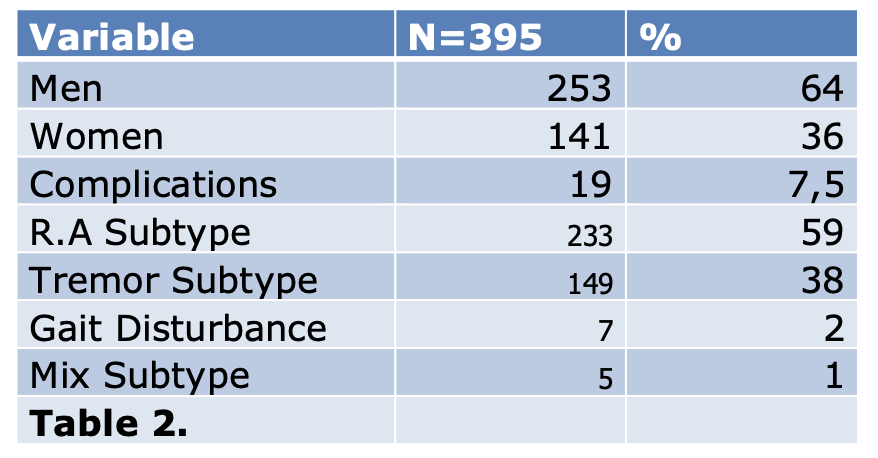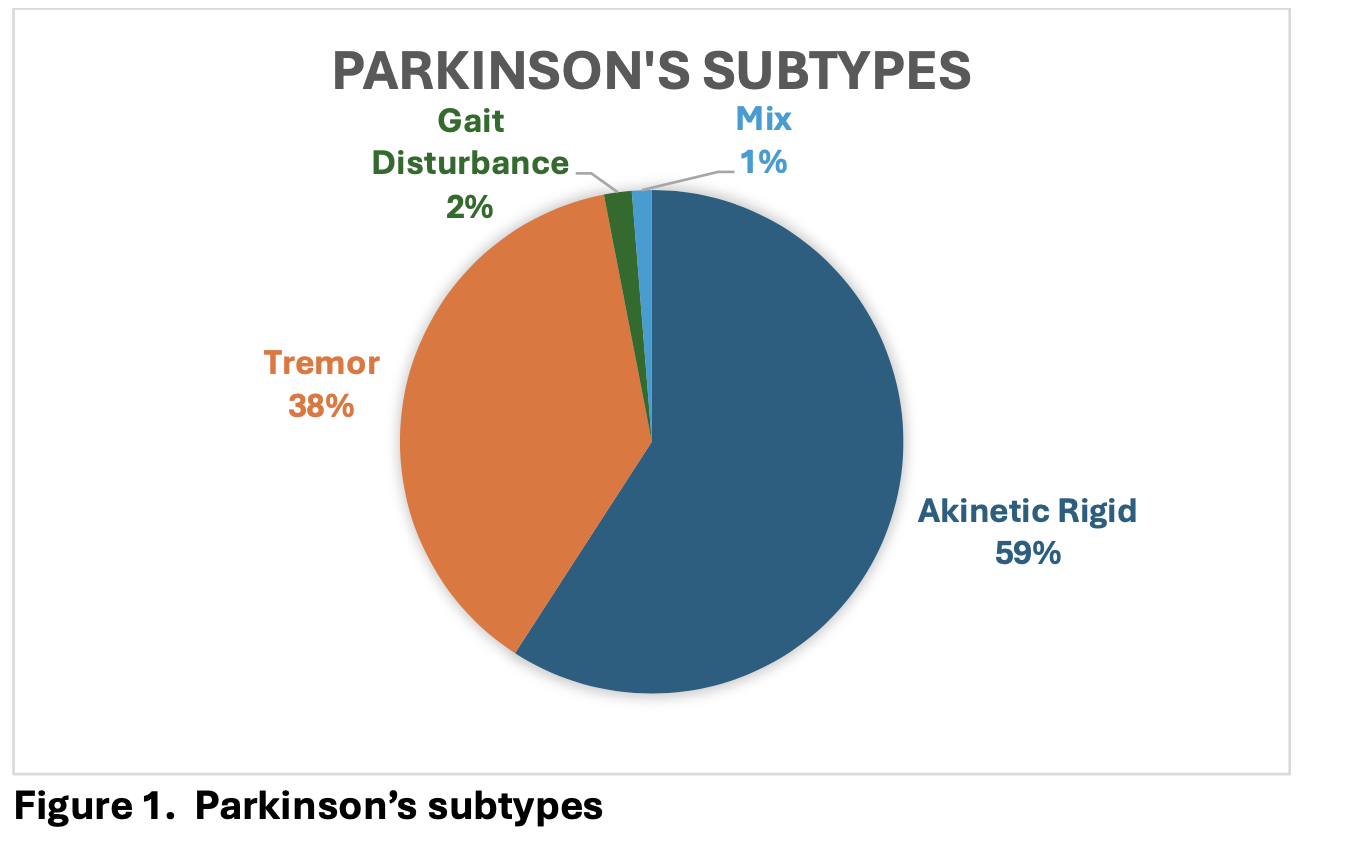Category: Parkinson's Disease: Cognitive functions
Objective: The objective of the present work is to investigate the clinical outcomes related to cognitive performance in Colombian patients with DBS treatment.
Background: Parkinson’s disease has increased its prevalence in Colombia as in the rest of the world, due to several factors, including population aging.
This has led to the strengthening for therapies such as DBS, which is known to be effective in symptom control and subsequently in improvement quality of life. However, in Colombia little is known about the impact of said therapy in terms of symptomatic control. For that reason, this study aims to investigate the outcomes of Parkinson’s disease DBS patients in a multicentric cohort in Colombia.
Method: A Cohort study was conducted with 394 patients including 253 males and 141 females with Parkinson’s disease Diagnosis who underwent bilateral DBS (STN and GPi) at multiple institutions in Colombia. Preoperative and postoperative cognitive assessment was analyzed using MOCA test, Patient cognitive complaint and cognitive and behavioral complaints of family members.
Results: The mean age at the time of surgery was 61 (range 38-85) years. 149 patients have tremor dominant subtype ( 37,8%), 233 have akinetic rigid dominant subtype ( 59,15%) , 7 have gait disturbance subtype ( 1,7%) and 5 patients have mixed subtype (1,26%).
2 patients (0,5%) died during the follow up period. 16 patients (4%) suffer impulsivity after the surgery. 1 patient (0,25%) have Dementia diagnosis after the surgery and it was present one year after the procedure. 10 patients (2,53 %) had some stage of cognitive compromise before surgery that did not deteriorate after surgery. Non other patient present dementia diagnosis at the the follow up.
Conclusion: The cognitive decline after Deep Brain Stimulation in the Colombian cohort of patients is not similar to that reported in other global cohorts. In our study, only one patient developed dementia one year after the procedure, and the cases with previous cognitive complaints did not deteriorate their cognitive function.
We can conclude Deep Brain Stimulation is a safe and effective method for Colombian patients in relation with cognitive preservation.
Table 1. Demographic Variables.
Figure 1. Parkinson’s Subtypes
References: Racki, V., Hero, M., Rožmaric´, G., Papic´, E., Raguž, M., Chudy, D., & Vuletic´, V. (2022). Cognitive Impact of Deep Brain Stimulation in Parkinson’s Disease Patients: A Systematic Review. Frontiers in Human Neuroscience, 16, 867055.
Fan S. Y., Wang K. L., Hu W., Eisinger R. S., Han A., Han C. L., et al. (2020). Pallidal versus subthalamic nucleus deep brain stimulation for levodopa-induced dyskinesia. Ann. Clin. Transl. Neurol. 7 59–68. 10.1002/acn3.50961
Yin Z., Bai Y., Zou L., Zhang X., Wang H., Gao D., et al. (2021). Balance response to levodopa predicts balance improvement after bilateral subthalamic nucleus deep brain stimulation in Parkinson’s disease. NPJ Parkinsons Dis. 7:47. 10.1038/s41531-021-00192-9
To cite this abstract in AMA style:
T. Lopez Gonzalez, S. Poveda, M. Fonseca, P. Arango, O. Rojas, G. Monsalve, J. Diez, J. Lobato, O. Bernal Pacheco. Cognitive Impairment in a Cohort of Patients with DBS for parkinson’s disease treatment from a multicentric Cohort in Colombia [abstract]. Mov Disord. 2024; 39 (suppl 1). https://www.mdsabstracts.org/abstract/cognitive-impairment-in-a-cohort-of-patients-with-dbs-for-parkinsons-disease-treatment-from-a-multicentric-cohort-in-colombia/. Accessed July 18, 2025.« Back to 2024 International Congress
MDS Abstracts - https://www.mdsabstracts.org/abstract/cognitive-impairment-in-a-cohort-of-patients-with-dbs-for-parkinsons-disease-treatment-from-a-multicentric-cohort-in-colombia/


